At Cornell, how did the debate on the Israel-Hamas war nearly turn violent? | Mike Kelly
ITHACA, New York — Marty Levine and Malak Abuhashim come from different worlds.
Levine is a Jewish American, the son of an Israeli mother and close friends to a Long Island man held hostage by Hamas in the Gaza Strip. Abuhashim is a Palestinian American Muslim, with more than a dozen relatives trapped in the Gaza Strip amid Israeli attacks.
Yet, on the bucolic campus of Cornell University, Levine and Abuhashim share a common nightmare. Both fear being physically attacked for their political and religious beliefs.
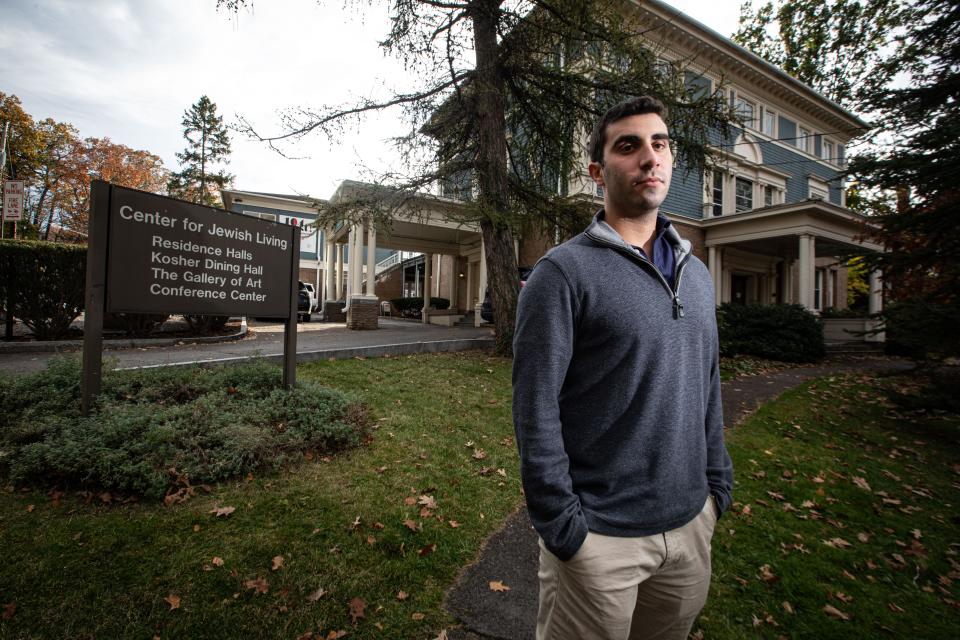
America’s college campuses have long been magnets for vigorous debates — even loud protests — over hot-button issues. Think anti-slavery abolitionists in the 19th century, civil rights and anti-Vietnam protestors in the 20th century and Black Lives Matter and climate change advocates in recent years.
But last month’s killing of 1,400 Israelis and the forced abduction of an estimated 240 men, women and children by the Palestinian terror group Hamas, followed by Israel’s retaliatory invasion of the Gaza Strip that has reportedly killed more than 10,000 people, galvanized many American campuses in ways that have not been seen for decades.
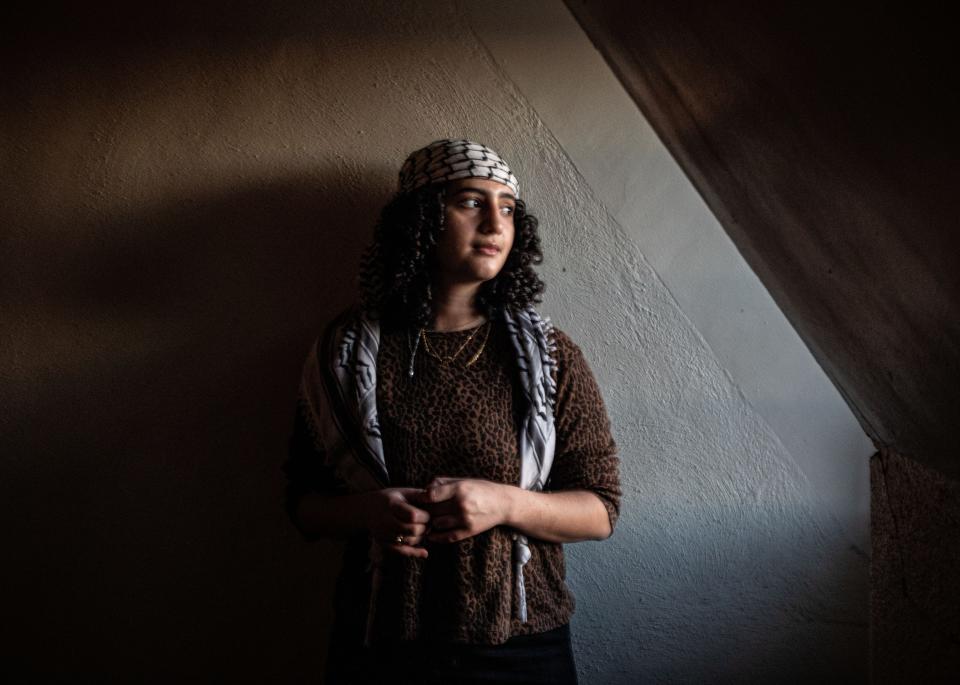
At Cornell, a stridently diverse Ivy League citadel atop a ridge on the edge of New York’s Finger Lakes region, the vigorous debates and marches over the resurgence of the Israeli-Palestinian conflict took an ominous turn two weeks ago. Someone claiming to be a “Hamas soldier” posted a series of social media threats to kill and rape Jews and shoot up a Cornell dining hall that serves Kosher meals and is adjacent to the campus Jewish center.
“I will bring an assault rifle to campus and shoot all you pig Jews,” the writer said, adding in another post: “Palestine will be free! Glory to Hamas!”
Two days later, after police raided an off-campus apartment, the FBI arrested Cornell engineering student Patrick Dai, 21, of Pittsford, New York, charging him with “posting threats to kill or injure another using interstate communications.” If convicted, Dai faces up to five years in a federal prison.
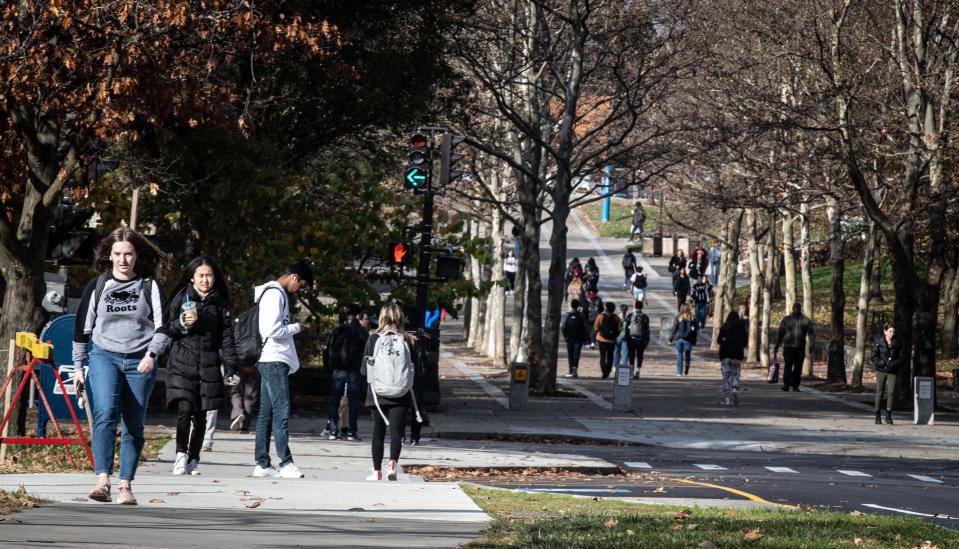
“Campuses are a microcosm of American society,” said Ross Brann, a professor of Judeo-Islamic Studies at Cornell who is slated to deliver a campus talk this week on antisemitism and Islamophobia. “But things are not supposed to explode on a campus like Cornell.”
That Patrick Dai was Asian — not Muslim or Palestinian — and described by his parents as mentally unstable did little to calm the suddenly tense Cornell campus. It also did not help after Dai’s mother told the Rochester Democrat and Chronicle newspaper that she had been given a note by her son who is now jailed and awaiting pre-trial hearings in federal court in Syracuse, New York, in which he apologized for the antisemitic posts.
After the threats, Cornell, which says that 22% of its roughly 21,000 students are Jewish, quickly transformed into a campus with police cars parked outside the Jewish dining hall and officers patrolling a building where Jewish studies classes met.
'I'm always on edge'
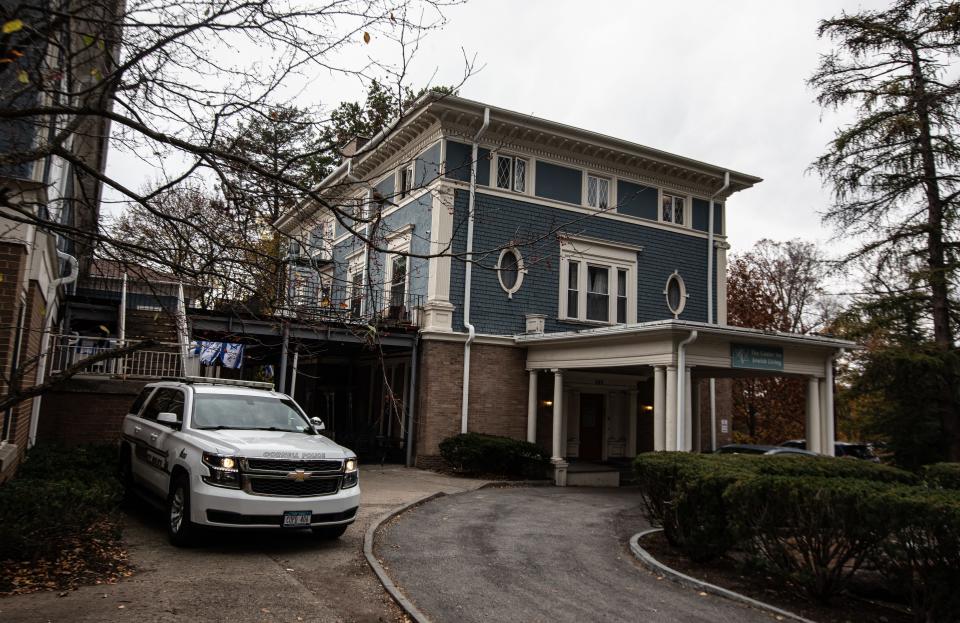
For Marty Levine, 21, a senior from Suffern, New York, who is studying economics and plans to become an investment banker, the new cloud of fear on campus prompted him to change a comfortable, perhaps careless habit.
During his first three years at Cornell, Levine never locked the door to his apartment.
“Now it’s always locked,” he said.
Malak Abuhashim, 21, a senior from Cleveland who is studying chemical engineering, also changed a seemingly ordinary habit. She rarely ventures out alone at night anymore. Instead, she tries to find friends to accompany her.
What’s more, she often hides her black and white keffiyeh scarf, a symbol of Palestinian nationalism and pride, in her jacket if she finds herself in an unfamiliar crowd. And if she listens to music during her walks across campus, she adjusts her noise blocking headphones to keep one ear free so she hear footsteps behind her.
“I’m always on edge, paying attention to my surrounding,” said Abuhashim, who leads the campus group, Students for Justice in Palestine. “It’s been a scary couple of weeks.”
On Friday, Columbia University suspended its chapter of Students for Justice in Palestine, along with another pro-Palestinian student group, Jewish Voice for Peace. Both groups have been heavily criticized by student Jewish groups for alleged antisemitism.
In a statement, Columbia accused the groups of “threatening rhetoric and intimidation.” The ban, which runs until the end of the current semester, means that neither group can receive university funding or hold meetings on campus.
Cornell has not taken such a hard stand yet against students who have been openly critical of Israel. But in recent weeks Jewish students at Cornell say they feel deeply misunderstood in their allegiance to Israel — and a sudden feeling of being targeted for being Jewish.
“People are talking past each other,” said Miranda Price, 21, of New City, New York, a business major who plans a career in agricultural policy.
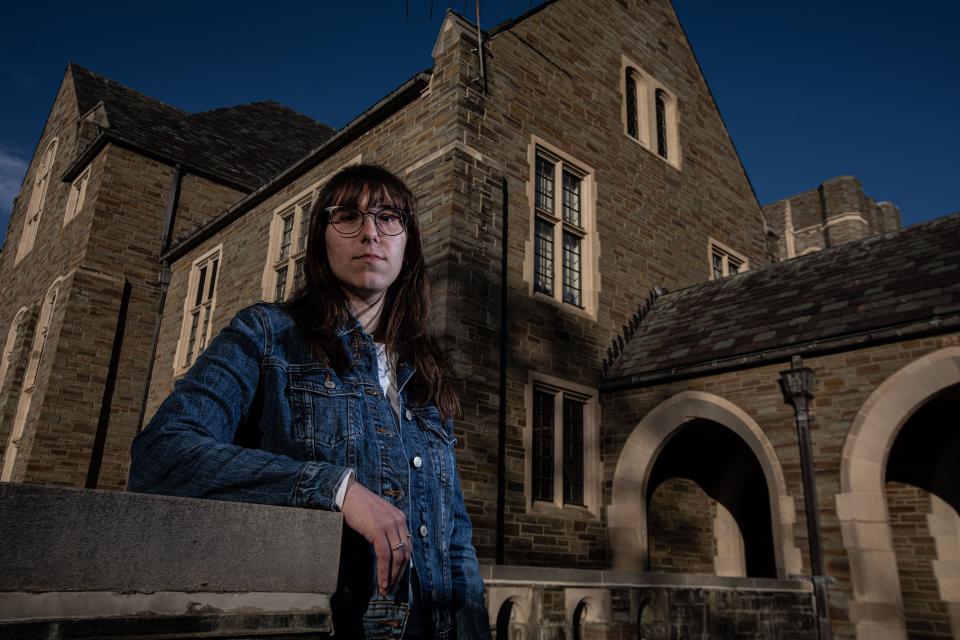
Price says she has noticed a disturbing increase in antisemitism and concedes that she now often wonders whether to tuck her gold necklace with its Star of David medallion inside her shirt when she ventures outside.
“I feel so un-listened to, so helpless,” she said on a recent afternoon.
Joseph Margulies, a Cornell professor of law and government, recently wrote in the Cornell Daily Sun, the campus student newspaper, that in his 20 years of college teaching — including 10 years at Cornell — he had “never seen so many students in so much distress.”
“A great many Muslim and Arab students feel unseen, unheard and unsafe," wrote Margulies. “More recently, their ranks have been swelled by the many Jewish students who feel the campus has become menacing. And of course, the person suspected of sending the sickening antisemitic postings is Asian, so we gird ourselves for a wave of anti-Asian hate.”
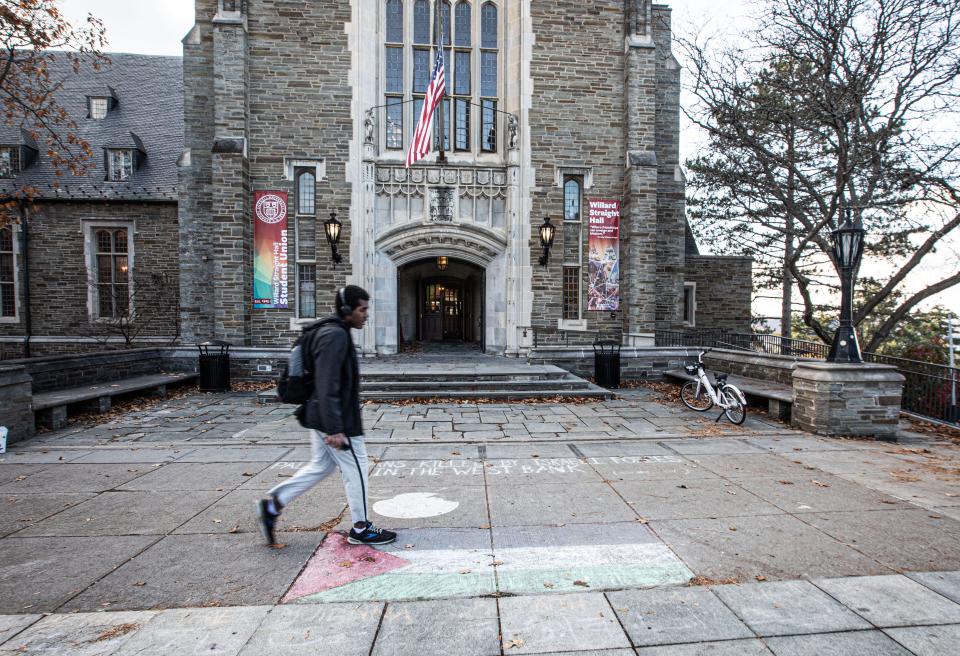
In an interview, Margulies, a veteran civil rights attorney who has represented suspected terrorists imprisoned at the U.S. Naval Base in Guantanamo Bay, Cuba, said the Israeli-Hamas conflict “touches people’s identity in a way I haven’t seen before” and that “the misery on both sides is so strong.”
“When there is that kind of identity threat,” he said, “it’s very hard to see past the fury.”
Like Jewish students who feel targeted, Muslim students now say they are also being singled out for harassment. Some claim that pro-Israel advocates even showed up to photograph their rallies in which they spoke in favor of curtailing Israel’s bombing of the Gaza Strip.
Abuhashim found that her photograph and strident statements in favor of Palestinian rights were being featured on the website Canary Mission, which purports to monitor groups that “promote hatred of the USA, Israel and Jews on North American college campuses.”
'Fear of backlash' persists
On a recent evening, Abuhashim climbed four flights of stairs inside Cornell’s Willard Straight student union building to a small room where the university allows Muslim students to gather.
Inside, two women, their heads covered in black scarves, hunched over books. A few minutes later, after spreading rugs on the floor, the women quietly knelt and bowed, their foreheads touching the rugs as they recited traditional Islamic evening prayers.
Abuhashim watched for a few seconds, then turned and walked down a hallway toward a window that overlooked downtown Ithaca and the nearly 40-mile long Cayuga Lake, the largest of the Finger Lakes. She stopped and pulled her cellphone from her pocket, then scrolled through a series of anonymous social media posts against Cornell Muslim students who had spoken at recent pro-Palestinian rallies on campus.
“Break a leg and fall in the sewer,” said one post.
“God should curse all the terrorists and those who support them,” said another.
Abuhashim put her phone back in her pocket and looked up.
“The community is very upset,” she said. “So many members of the community are too scared to say anything because of the fear of backlash.”
The next day, Marty Levine walked down a steep hill from Cornell’s law school to the Center for Jewish Living. Several Israeli flags fluttered from an overhang. A Cornell University police car sat in the driveway.
Subscriber exclusive: Mom of accused Cornell student opens up about son's mental health, apology in exclusive interview
The week before, New York Gov. Kathy Hochul dropped by the center for a meal with Jewish students, hoping to reassure them that they should not be afraid. Cornell’s President, Martha Pollack, issued a statement promising that the university “will not tolerate antisemitism.”
But Levine said fear still persists.
The war in Gaza is far away, he said, “but it’s not really far away.”
Many Jewish students were especially concerned after a Cornell history professor and activist, Russell Rickford, in a speech at a pro-Palestinian rally in downtown Ithaca, said that while he abhors violence and the “targeting of civilians,” he was “exhilarated” by the Hamas attack on Israel of Oct. 7.
At Cornell, pro-Palestinian activists said Rickford’s “exhilarated” remark was reported out of context by the media.
But the damage was done. Rickford apologized publicly and asked for a leave of absence. Meanwhile, after African American students raised concerns that Rickford had been treated unfairly because he is Black, two board members of the Cornell Daily Sun resigned to protest what they felt was the newspaper's unfair coverage of the controversy.
“What I’ve realized is that there is very deep antisemitism that has always been here,” Levine said. “Students have been using the conflict in Israel for displaying antisemitism and hiding it behind the false notion of being anti-Israel.”
Levine is especially concerned for the safety of his friend, Omer Neutra, 21, of Plainview, New York, who was serving in an Israeli army unit near the Gaza Strip and was reportedly taken hostage by Hamas in the Oct. 7 attack.
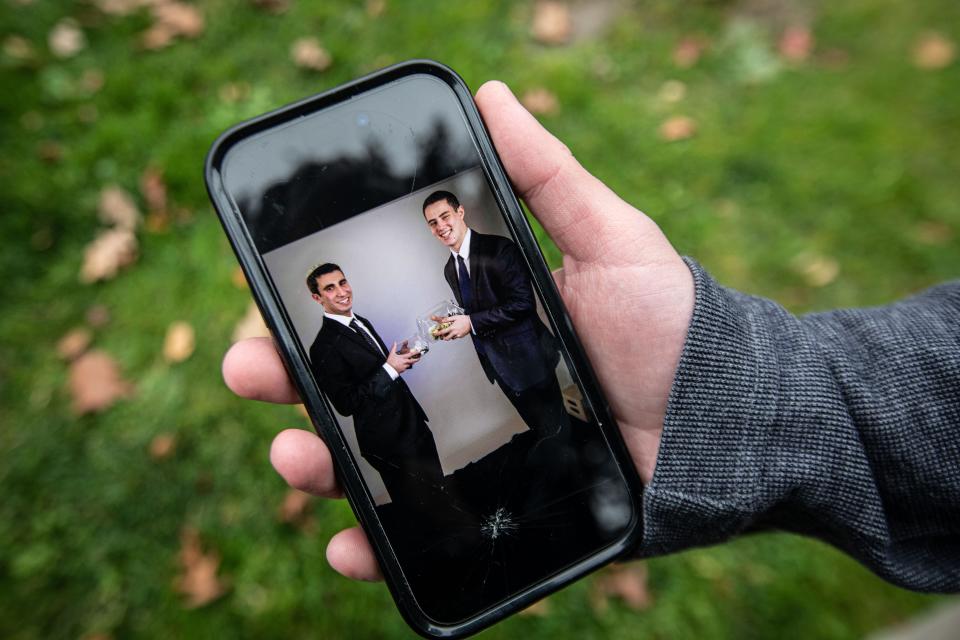
Standing on the street outside the campus Jewish Center, Levine scrolled through photos of Neutra on his cellphone. He stops at a photo of Neutra at a party at Levine's home.
“It’s hard,” Levine said. “People at Cornell see something on the news. They can’t make that personal connection. But I have pictures on my phone of Omer.”
What to know: Cornell student accused of threatening Jewish students makes first court appearance
'A lack of proper conversation'
Hugo Amador, 21, a Honduran-born senior, majoring in English and biology, finds himself as something of a referee of the strident feelings colliding at Cornell. As the opinion editor of the Cornell Daily Sun, it’s Amador’s job to present some measure of balanced viewpoints.
Such a task is extraordinarily difficult now, said Amador, who is neither Jewish, Muslim, Christian nor anything else. He’s a self-described atheist who hopes to become a lawyer.
“People aren’t communicating properly,” he said. “People aren’t using the proper language. There’s just a lack of proper conversation.”
A few blocks from campus, Dan Schwarz, who has taught English at Cornell for more than half-a-century and has seen his share of campus protests including a building takeover by armed Black students in 1969, settled into a soft chair in his living room across from a display of tribal masks on his fireplace mantle.
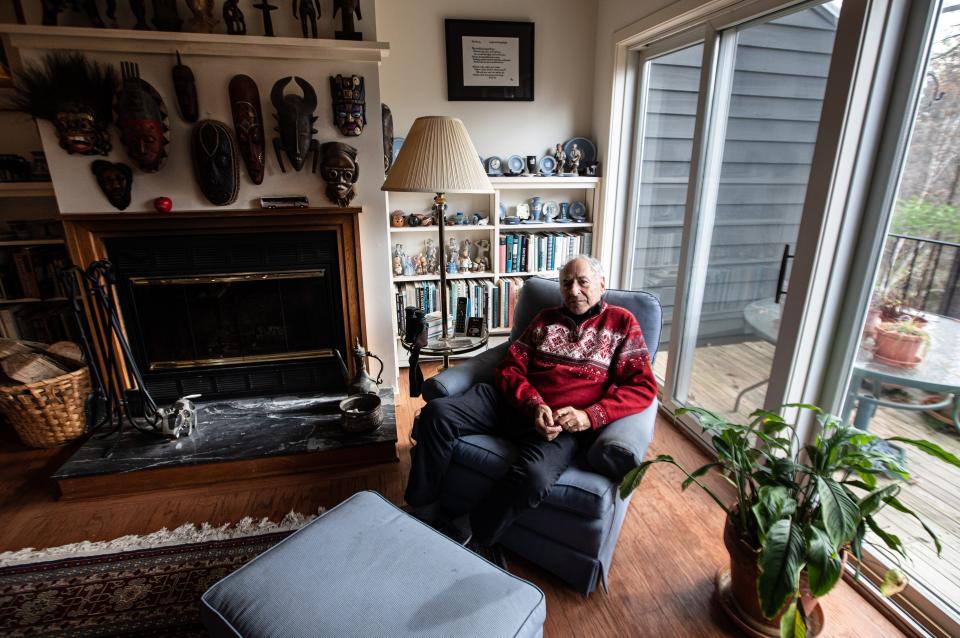
Floor to ceiling glass windows framed a peaceful meadow that sloped down a hill. Sparrows swept from a porch outside the windows to the nearby trees in search of food.
Schwarz, 82, is one of the few professors left at Cornell who knew Benzion Netanyahu, the father of Israeli Prime Minister Benjamin Netanyahu. Benzion taught Jewish studies for several years at Cornell in the early 1970s.
Schwarz pondered the arc of time — how much history has changed and how much it hasn’t.
“Universities are places where there is tension,” he said of the current atmosphere at Cornell. “There’s a crisis of ignorance and a crisis of malice. This is a dark tunnel we have to come through and we’ll be better for it.”
Back on the campus, a group of Muslim students and several Christians — and one Jew — who support them gathered in a classroom.
Laila Salih, 20, a junior from Seattle, studying computational biology, adjusted her white Islamic head scarf.
For her first two years on campus, Salih followed her parents' advice and did not wear the scarf, which observant Muslim women traditionally wear. Her father, fearing his daughter might be harassed, advised her to steer clear from such an obvious symbol of her faith.
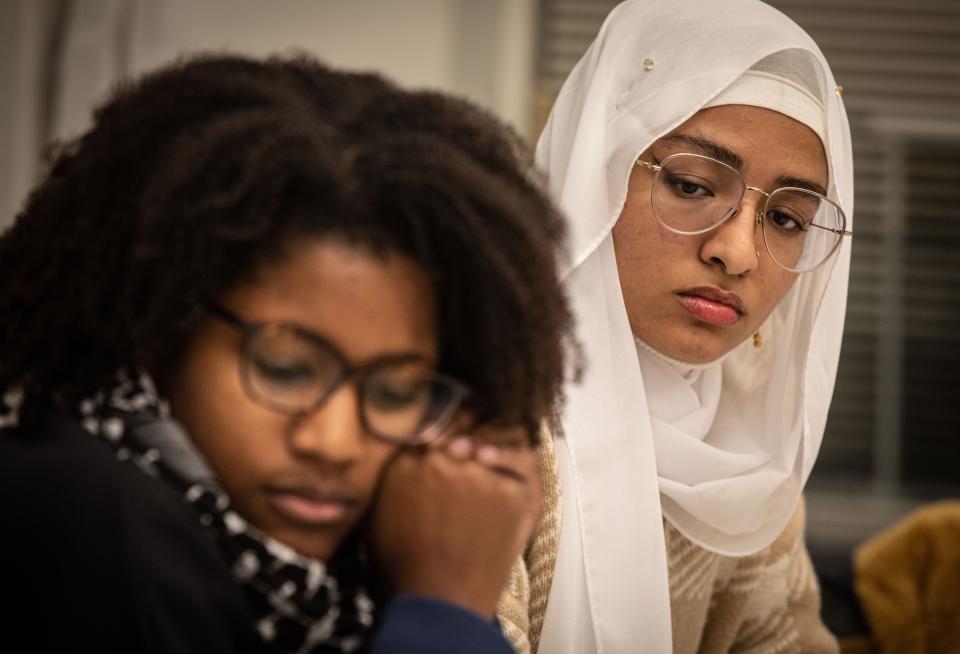
This year, she decided to wear her scarf.
“And then came Oct. 7,” she said, pointing to the date of the Hamas attack on southern Israel that left 1,400 people dead and another 240 taken hostage.
Each morning since the attacks, Salih says her mother calls to ask if she is “OK.
“It’s very scary now,” Salih said. “As a veiled Muslim woman, it’s terrifying. Everyone looks at me. It’s very strange. I thought people had gotten past the 9/11 stigma.”
Salih also fears being “doxed” — a slang reference to describe the posting of information on the internet that could be used to deny jobs or academic fellowships for high-performing students like her.
In recent weeks, a variety of Muslim students at other campuses have complained that they have been “doxed” on the internet for their pro-Palestinian activism.
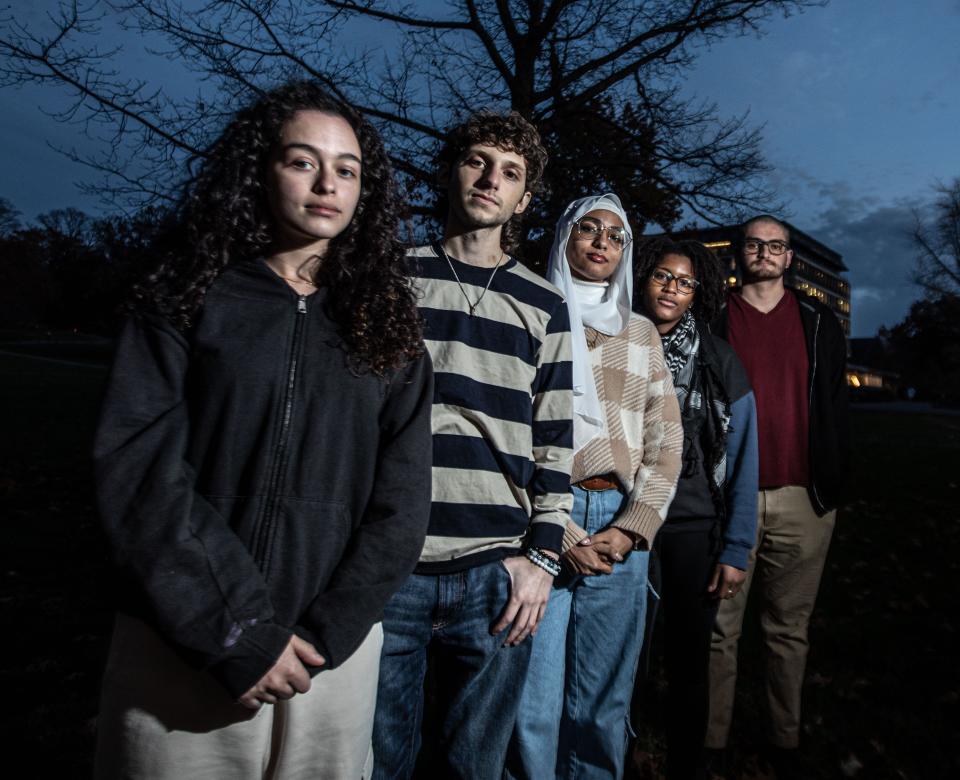
As Salih described her fears, Adrian Cardona, 20, a Jew raised in Costa Rica, who has taken a public role at Cornell in supporting the Palestinian cause, said he also worries about being doxed.
“I’m majoring in environmental engineering,” Cardona said. “Suppose I apply for a job at the U.S. Environmental Protection Agency after I graduate? Will someone check on my Palestinian activism?”
'My PTSD kicked in': Father of terror victim watches chaos in Israel with horror | More from Mike Kelly
Can common ground be found?
The next morning, Henry Schechter, 19, a sophomore from Dallas who is majoring in government, took a seat at an outdoor table outside the massive columns of Goldwin Smith Hall.
A chilly breeze pushed dried oak leaves across the plaza. A campus tour group with a dozen or so high school students walked by.
Schechter, who is Jewish, pointed to a patch of asphalt, about 200 yards across the campus. A week ago, someone painted “Free Palestine” on the walkway. Within 24 hours, the university covered the message with asphalt.
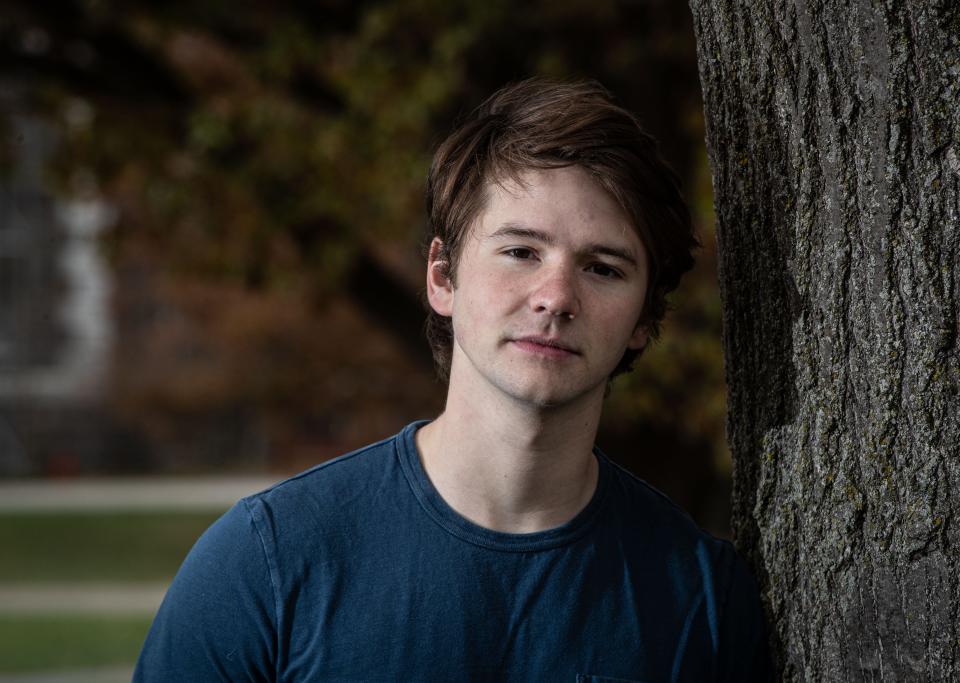
Schechter worries that he may be singled out for harassment because he’s Jewish. Yet, he also yearns to find common ground with Muslim students.
“I would love for there to be some sort of sanctioned environment at the school where someone like me could sit down with someone who made those threats online,” Schechter said. "When you sit down with different sides, it helps to cut through the emotion and see the human being behind it.”
Right now at Cornell and at so many other American campuses, that safe place is still a fleeting dream.
“It’s hard,” said Schechter, “to push aside the anger and just listen.”
Mike Kelly is an award-winning columnist for NorthJersey.com, part of the USA TODAY Network, as well as the author of three critically acclaimed nonfiction books and a podcast and documentary film producer. To get unlimited access to his insightful thoughts on how we live life in the Northeast, please subscribe or activate your digital account today.
Email: kellym@northjersey.com
This article originally appeared on NorthJersey.com: Cornell debate on Israel-Hamas war nearly turns violent

